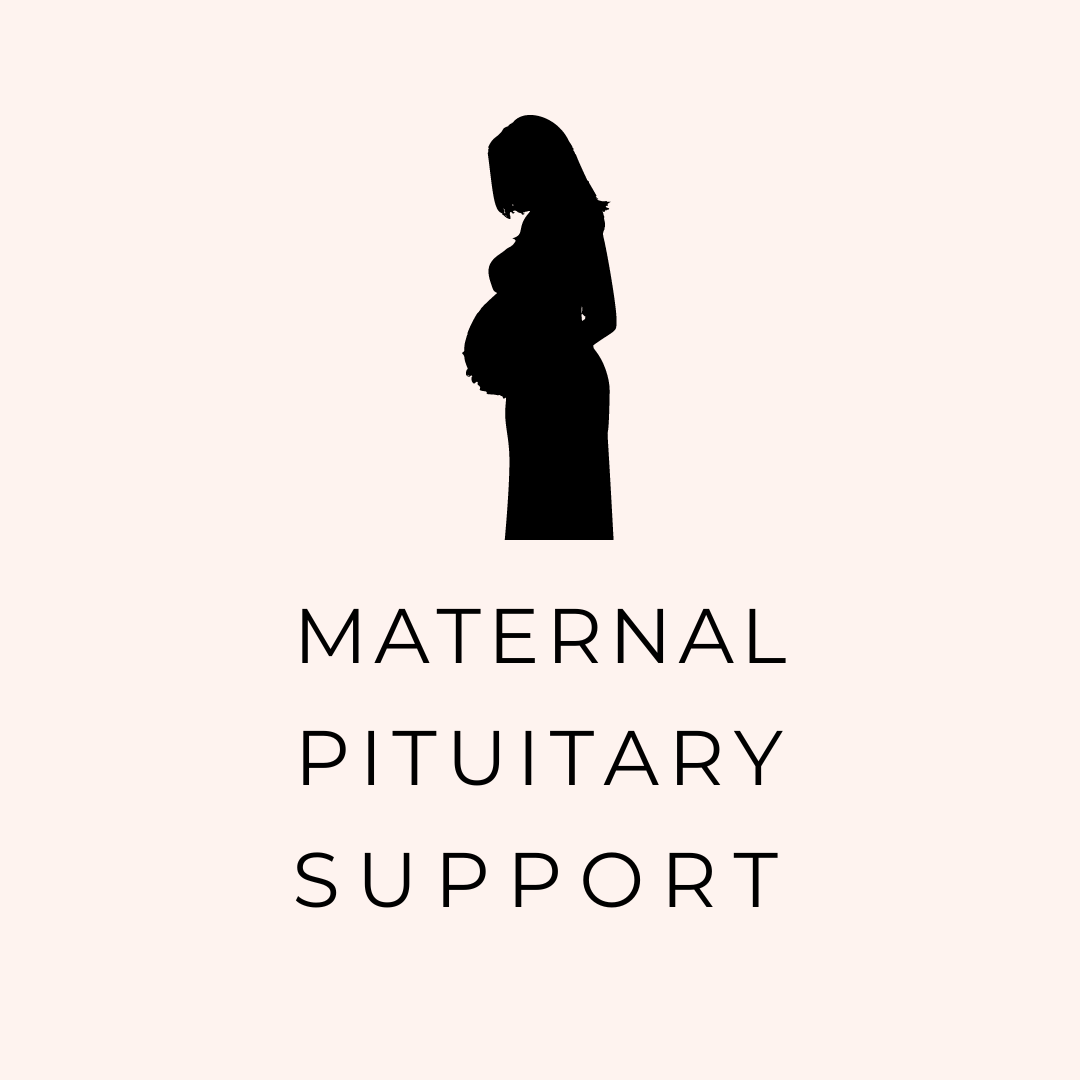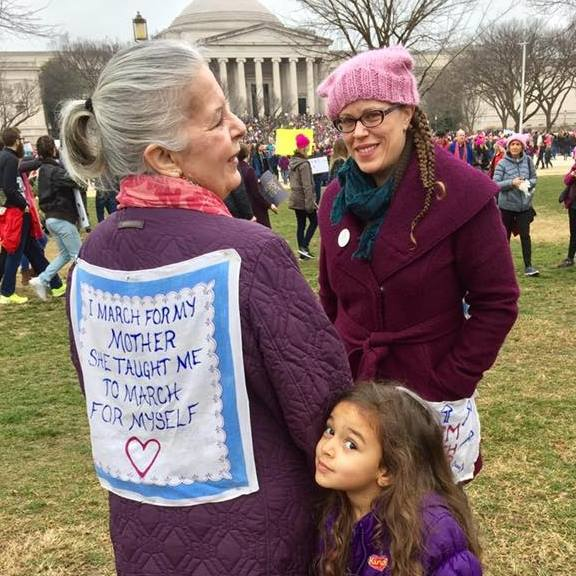On the morning of Groundhog's Day in 1971…
On the morning of Groundhog's Day in 1971, my husband took me to the obstetrics ward at the hospital. It was the start of a blizzard and roads were already closed. This was a planned induction because I was several weeks overdue, which I now know is a symptom of hypothyroidism. The nurse whisked me away from my husband with only a tiny kiss to send me on my way to having our first baby. I had turned 22 a few weeks earlier and quite honestly, I was totally clueless. My mother gave me advice and back then, there were no prenatal groups, hardly any books for the mothers to be. The internet wasn't even a glitter in anyone's eye yet. Our information was gathered and gleaned, woman to woman. The nurse gave me an enema, which I had never had before. Then I was shaved and sterilized. I was put into a room by myself for labor. I could hear other women screaming and I was told to ignore it. The doctor came in around 10 am, broke my waters and then I proceeded to start contractions. By 11 am, I was having hard contractions. Let me tell you about the nurse. She sat in a chair by the door reading a book the entire time and barely looked at me. She refused to talk to me and there was nothing resembling compassion. She checked my dilation. Soon the doctor came back, gave me an injection and I went to sleep.
I remember waking up in the delivery room, mumbling, 'No! I'm not ready to have this baby yet!' Apparently I repeated it several times and was given another shot to knock me out. This was actually quite common those days... just knock them out and pop them out. Because of the second shot, I slept until around 11 pm. The ward I was in was darkened but I could see the clock. I'd been out for about 12 hours. I looked under the blanket to see my smaller belly. All I saw was the bed saturated in my blood, from my feet to the pillows. I searched for a call button. When the nurse arrived, she screamed and ran down the hallway. She came back with another nurse and they worked on me. A piece of the placenta was retained and bleeding out. They tried to get me to the bathroom, which was right next to my bed. I couldn't pee at all. My blood volume and fluids were very low. I will not describe how they massaged my uterus to try and expel what was left. I know why night-shift nurses are called night angels. No doctor. Did I mention a two foot blizzard going on?
The next morning I saw a doctor. They had inserted a catheter and bag, and had given me some sulfa drugs to prevent infection, which pee out bright yellow. During visiting hours, some father noticed the bag was leaking all over the floor. I called the nurse and she was pissed! She had to clean it up in front of everyone. A woman across the room from me was the only one trying to breastfeedbesides me. My mother had breastfed us all. All the others were given shots so they could bottle feed, very common back then. The woman across from me was incredibly angry and didn't want to see the baby. I just knew she had to give her baby up for adoption, like so many before abortion was legalized in 1973. She cried and raled for days and nobody visited her. I was there for more than a week, so I saw some comings and goings. During the blizzard, women were sleeping in the hallway because they had no beds.Super low atmospheric pressure from the blizzard causes lots of early births. I also found out that if you couldn't pay your hospital bill, they could take your baby. Most people didn't have health insurance unless they worked for large corporations or were members of unions. The rest paid out of pocket.
The sweetest thing happened. We got our babies to breastfeed a few times a day but the others had to go to the nursery to see their babies through the glass. The nurses fed them in the nursery. They were not allowed to hold their babies. I am not kidding. One late afternoon I had my beautiful daughter to nurse. I held her, checked her fingers and toes, and saw a big bruise from forceps on her head. She was very docile, sleeping mostly and even I went to sleep while waiting for the nurse to return. I spread my legs to make a safe space for her. Sometime in the morning, a new nurse saw me with my baby and said, angerly, it was against the rules!. It wasn't my fault that nobody picked her up the evening before. It even shows that they didn't check us during the night.
When the doctor visited a few days after the birth, he explained some things. He told me to tell every doctor I see in the future that I had a severe postpartum hemorrhage. He said that issues could develop over time or this could spontaneously get better. He said he really couldn't predict because my milk was coming in. I'm not sure if he mentioned hormones but I wouldn't have known what that meant back then. Dutifully, I have told every single doctor for the last 51 years that this had happened to me and how difficult it was to get diagnosed with anything. I just told a new doctor this. Most of them rolled their eyes and changed the subject. I didn't even see an endocrinologist until my daughter was a budding teenager. My GP medicated me for low thyroid.
Those who have seen the excellent series, Call the Midwife, will understand what maternity support was like back in the '50s, '60s and '70s. Basically, you got pregnant, had a few checkups with the midwives or GP, and then off to the hospital, or you gave birth at home. You only had a doctor if something went wrong. I had pre-eclampsia in the final weeks of pregnancy, which they called toxemia back then. Later I found out pre-eclampsia is higher in hypothyroid mothers. I was probably hypothyroid during pregnancy, recollecting my symptoms. Medical practice was changing but not fast enough, especially with the baby boom after WWII. Old medical superstitions persisted and often prevailed. Having 'natural' childbirth without drugs was discouraged because the doctor would have to hang around. By making a painless birth popular through anesthesia, the doctor could be in and out in no time. Spinal injections were not a thing back then. Breastfeeding was discouraged because it wasn't fashionable. There were six women in the ward and only two of us wanted to breastfeed. Baby formula companies found their audience: busy mothers.
Every doctor who says that postpartum hemorrhage is not a western concern in childbirth has ignored the number of women who actually go through birth trauma in western countries. We're not living in the jungle or on the top of a mountain. Postpartum hemorrhage has been increasing since the '90s and still they say it doesn't happen in the 'civilized' world. Yes, we now have the top obstetric tools and birthing suites but it takes doctors, midwives and nurses to be intelligent about maternal care surrounding childbirth in order to have a positive birth experience. I believe that the majority of postpartum hemorrhages happen through medical mistakes and neglect, like yanking out the placenta abruptly. We are also seeing racial discrimination rise in high risk pregnancies, with women of color. The maternal death rate is rising, especially in women of color. Midwives are still looked down upon by other medical professionals. I remember when insurance providers would only let a new mother stay no longer than 48 hours. I hope that is no longer true.

